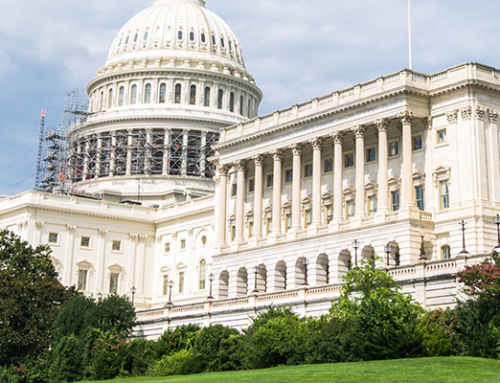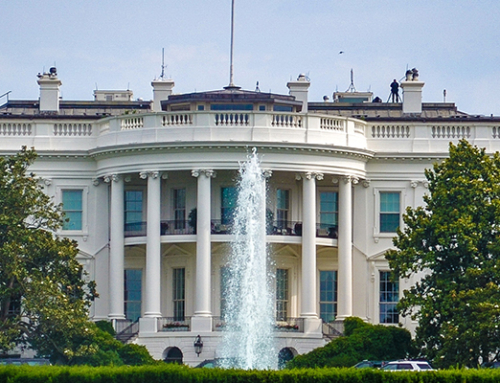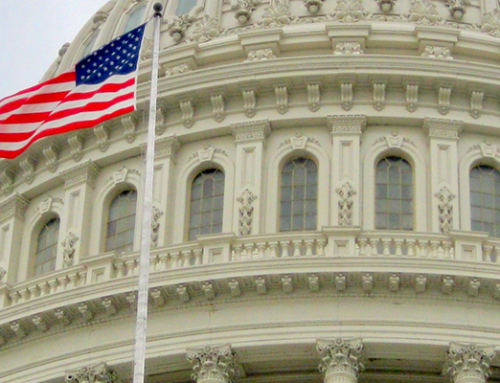On April 5, 2020, US DOL released UI PL 16-20 to provide Operating, Financial, and Reporting Instructions the Coronavirus Aid, Relief, and Economic Security (CARES) Act of 2020 – Pandemic Unemployment Assistance (PUA) Program
Background
The CARES Act was designed to mitigate the economic effects of the COVID-19 pandemic in a variety of ways. The CARES Act includes a provision of temporary benefits for individuals who have exhausted their entitlement to regular unemployment compensation (UC) as well as coverage for individuals who are not eligible for regular UC (such as individuals who are self-employed or who have limited recent work history). These individuals may also include certain gig economy workers, clergy and those working for religious organizations who are not covered by regular unemployment compensation, and other workers who may not be covered by the regular UC program under some state laws.
Comment:
Administration of this new program will be a challenge for states to make proper determinations under the new statute in a timely way. Systems normally used for Disaster Unemployment Assistance (DUA) claims may be strained by the volume of new claims. New programming and training will be needed to align with the new program, and all of this is needed before proceeding to accept claims that may be filed for weeks retroactively going back to weeks beginning on and after January 27, 2020. Also, if a state requires individuals to first apply for regular unemployment compensation, the volume of new applications (many of which will be denied) will negatively impact the processing of regular unemployment compensation.
The Highlights of this program include:
The program provides benefits for weeks of unemployment going back to the weeks beginning on and after January 27, 2020.
Comment:
This reach back provision is tied to the point at which the impact of COVID-19 was recognized as a disaster, but also makes it more difficult to determine eligibility retroactively in a timely way.
The program is designed to provide support to a broad category of individuals who are otherwise not eligible for unemployment compensation or extended benefits under state or Federal law or pandemic emergency unemployment compensation, including those who have exhausted all rights to such benefits. It includes self-employed, individuals seeking part-time employment, individuals lacking sufficient work history, and those who otherwise do not qualify for regular unemployment compensation or extended benefits under state of Federal law or PEUC.
Comment:
This definition is so broad as to reach virtually every individual who was performing work prior to unemployment.
In general, PUA provides up to 39 weeks of benefits to qualifying individuals who are otherwise able to work and available for work within the meaning of applicable state UC law, except that they are unemployed, partially unemployed, or unable or unavailable to work due to one of the COVID-19 related reasons identified in Section 2102(a)(3)(A)(ii)(I) of the CARES Act and listed below:
- The individual has been diagnosed with COVID-19 or is experiencing symptoms of COVID-19 and is seeking a medical diagnosis;
- A member of the individual’s household has been diagnosed with COVID-19;
- The individual is providing care for a family member or a member of the individual’s household who has been diagnosed with COVID-19;
- A child or other person in the household for which the individual has primary caregiving responsibility is unable to attend school or another facility that is closed as a direct result of the COVID-19 public health emergency and such school or facility care is required for the individual to work;
- The individual is unable to reach the place of employment because of a quarantine imposed as a direct result of the COVID-19 public health emergency;
- The individual is unable to reach the place of employment because the individual has been advised by a health care provider to self-quarantine due to concerns related to COVID-19;
- The individual was scheduled to commence employment and does not have a job or is unable to reach the job as a direct result of the COVID-19 public health emergency;
- The individual has become the breadwinner or major support for a household because the head of the household has died as a direct result of COVID-19;
- The individual has to quit his or her job as a direct result of COVID-19; or
- The individual’s place of employment is closed as a direct result of the COVID-19 public health emergency.
Comment:
This laundry list of items, any one of which could result in an individual qualifying, creates the difficult administrative challenge of whether to accept self-attestation and/or documentation that cannot be easily and quickly verified as the basis for determining benefits. It places the agency in the position of quickly paying benefits with a higher incidence of fraud or overpayment or delaying payment to risk failing to meet due process standards. In many cases the agency may be forced to try to prove the negative that the information presented by the applicant is not truthful or accurate.
The PUA Weekly Benefit Amount (WBA) is equal to the WBA authorized under state UC law where the individual was employed. In no case will the amount be less than the minimum WBA described in 20 C.F.R 625.6. For individuals without reported wages sufficient to establish a WBA, the WBA will be calculated according to processes for DUA benefits set out in 20 C.F.R. 625.6.
Comment:
The determination of the applicable WBA under the DUA regulations will be difficult and time consuming for state agencies that must make timely determinations and meet due process with a much larger number of applicants than is normally processed for DUA applications.
For weeks of unemployment beginning on or after March 27, 2020, and ending on or before July 31, 2020, individuals eligible to receive PUA are also eligible to receive FPUC, authorized under section 2104 of the CARES Act. FPUC provides an additional $600 per week. See UIPL No. 15-20 for additional information.
The duration of PUA benefits is generally limited to 39 weeks, minus any weeks of regular UC and Extended Benefits (EB) the individual received. The weeks for which an individual collected PEUC may not be deducted from the individual’s PUA entitlement.
Comment:
First, it will be difficult to determine the facts going back to weeks beginning on and after January 27, 2020. There may be some evidence of COVID-19 impact on an individual’s work, but did it meet the requirements set forth in the statute? It may be difficult to determine whether an individual has received other benefits with respect to specific weeks and to verify amounts paid. The incidence of appeals from denials may be high. The same basic appeals determination and appeals procedures that apply to DUA and UI claims will apply to these claims, creating a significant increase in the number of specialized appeals for state UI agencies on top of the already increasing regular UI appeals numbers.
Summary
In summary, it will be extremely difficult for state UI agencies to bring up this new program in addition to the other programs in such a short period of time. New programming systems, training, and staffing will be needed on a very short time frame.
The administrative challenges will also impact employers trying to determine their reporting responsibilities and increased claims costs and claimants seeking to determine how to apply for the appropriate benefit program or programs on-line or otherwise to provide support while they are unemployed.






